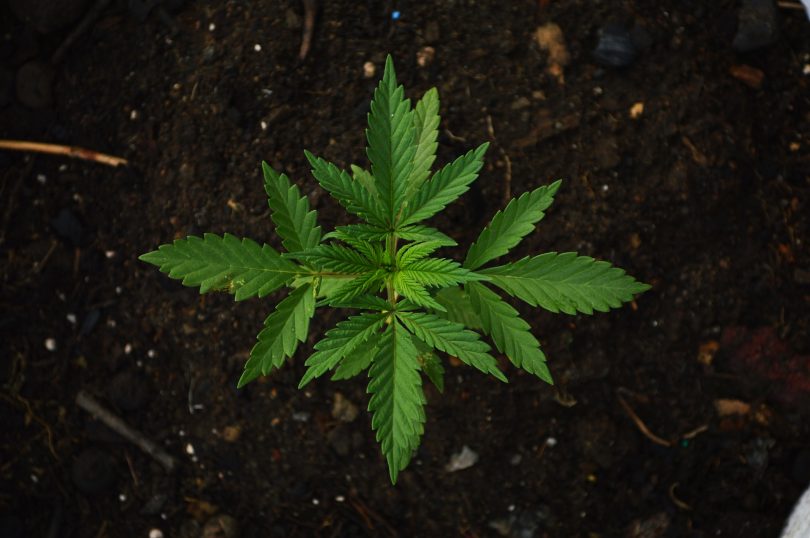HIV—or “Human Immunodeficiency Virus”—is a virus that attacks healthy cells in the body that fight infection. As a result, patients afflicted with this virus have a compromised immune system and are much weaker at fighting diseases and infections. If untreated, HIV can eventually lead to the onset of AIDS—or “Acquired Immunodeficiency Syndrome.”
There’s currently no cure for HIV, but its symptoms can be managed with medications. However, side effects of the virus may also be managed with more natural alternatives—including CBD.
So, what are some of the uses of CBD—the non-psychoactive cannabinoid in cannabis—for patients dealing with HIV?
- Alleviate Nausea
Some medications for HIV can come with a number of side effects, including nausea. In fact, nausea is one of the more common early side effects of nucleoside reverse transcriptase inhibitors (NRTIs), which are drugs that are used to stop the virus from duplicating itself. [1] More specifically, they’re used to prevent an enzyme that HIV needs to make copies of itself.
Luckily, CBD may be able to alleviate the nausea experienced as a result of such medications. Studies have shown that CBD may be able to relieve feelings of nausea by manipulating the endocannabinoid system, which regulates nausea and vomiting, among other things. [2]
- Relieve Pain
There are many symptoms of HIV, and pain may be one of them. Patients with HIV sometimes complain of pain in the joints, muscles, and nerves. [3]
But many studies suggest that CBD can be highly effective at treating pain, whether from HIV or other diseases or injuries. [4] Cannabinoids like CBD have an analgesic effect on the body and may be used to treat pain effectively. More and more people are already using CBD for pain, whether as a topical to directly target areas of pain or as an oral application for a more systemic effect.
- Reduce Anxiety
People with HIV may suffer from a number of physical side effects, but their emotional and mental well-being may also be affected. The idea of having this ailment can wreak havoc on a person’s psychological state and can lead to anxiety and depression.
While there are plenty of anti-anxiety medications available, CBD may be used as a natural yet effective alternative. Current evidence suggests that CBD has a calming effect on the central nervous system and may be beneficial for anxiety. [5] Many people already use it for this specific purpose, whether as a result of being diagnosed with HIV or other reasons.
- Stimulate the Appetite
Many patients suffering from HIV experience loss of appetite. This may be due to the disease itself, the medications being taken, or even liver disease, such as hepatitis A, B, or C.
In some cases where the symptoms are severe, appetite stimulant medications may be administered. However, CBD may be also be used instead to help boost the appetite in patients with HIV.
While CBD may not give a person the “munchies” as THC often does, it may stimulate the appetite in a different way when added to foods and beverages. By alleviating nausea and relaxing the nervous system and digestive tract, patients will feel more apt to eating.
There are so many medical applications to CBD that are increasingly being discovered through continued research. And the symptoms associated with HIV may be yet another area where CBD can be effective.
References:
- De Clercq E, :”The nucleoside reverse transcriptase inhibitors, nonnucleoside reverse transcriptase inhibitors, and protease inhibitors in the treatment of HIV infections (AIDS)“, Advances in Pharmacology, 2013, Vol. 67, pp.317-58.
- Parker, L.A., et al, “Regulation of nausea and vomiting by cannabinoids“, British Journal of Pharmacology, August 2011, vol. 163(7), pp.1411–1422./
- Wilson, NA., et al, “Identifying Symptom Patterns in People Living With HIV Disease“, Journal of the Association of Nurses in AIDS Care, March-April 2016, Vol. 27(2), pp.121–132.
- Russo, E.B., “Cannabinoids in the management of difficult to treat pain“, Therapeutics and Clinical Risk Management, February 2008, Vol. 4(1), pp.245–259.
- Shannon, S., et al, “Cannabidiol in Anxiety and Sleep: A Large Case Series“, The Permanente Journal, 2019, Vol. 23, pp.18-041.










